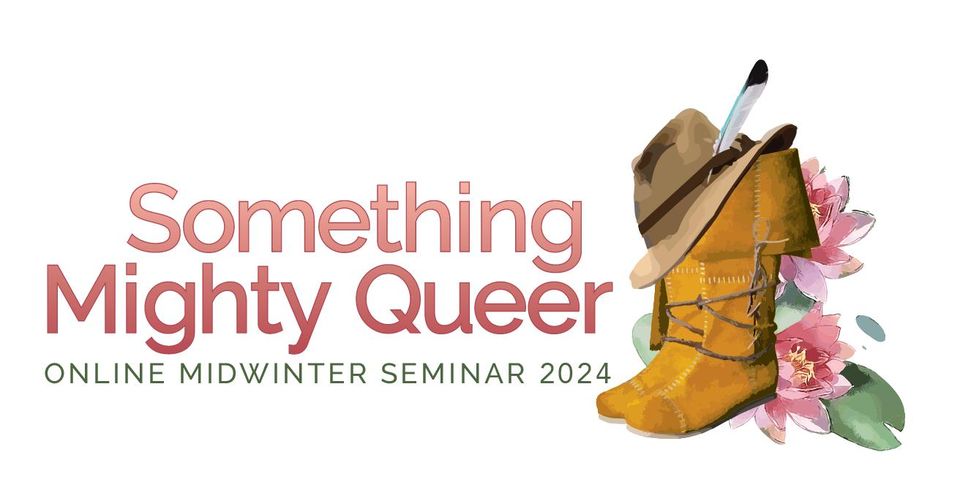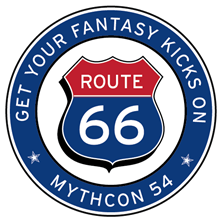Loading...
Event Website
https://www.mythsoc.org/oms/oms-2024.htm
Start Date
2-18-2024 3:00 PM
End Date
2-18-2024 3:50 PM
Description
Holly Munro, the office assistant come agent in Jonathan Stroud’s young-adult series Lockwood and Co., is the sole character in the five books to hint at living in a queer relationship. Lockwood and Co. is a small agency in London, fighting against the Problem, the nightly recurrence of ghosts and specters. In The Empty Grave, the final book in the series, Holly and Lucy Carlyle are crouched in the kitchen at 35 Portland Row, waiting for an attack of a group of thugs on the house. Holly and Lucy are nervously exchanging confidences, and Holly makes the point that Antony Lockwood, the leader of the company and owner of Portland Row, is not her type: “Holly laughed again; her eyes sparkled as she glanced at me sidelong. ‘You must know there are other possibilities in this world’” (ch. 19).
Such a half-hinted suggestion of sexual orientation is not enough to position Stroud’s series as a queer text, but the presence of ghosts throughout Britain operate as a destabilizing force, undermining family, social, and governmental organization. The Problem destabilizes the country so completely that children and teens, the only ones with the ability to see ghosts, must lead the fight against the hauntings. The Problem is not what Pauline Palmer calls a case of “queer spectrality;” however, the epidemic of ghosts and hauntings across the country works to both undermine and reconfigure normative and hegemonic power structures.
Lucy Carlyle, the narrator of the series, lives her life in the liminal space between life and death. She is an operative, a ghost hunter, and most of all a listener: she is one of only two people in England who can talk to spirits. As a teen girl, Lucy undermines conventional representations of femininity, and as an agent, she undermines accepted and safe ways of dealing with spirits. Even her attachment to Anthony Lockwood minimizes sexual tension and undercuts the romantic trope that so often dominates teen fiction. I want to argue that Stroud’s series, while not overtly queer in its representation of gender or gender identities, presents a secondary world that is queered by its destabilization of normative societal, institutional, and young adult romantic tropes.
Creative Commons License

This work is licensed under a Creative Commons Attribution-NonCommercial-No Derivative Works 4.0 International License.
Included in
Children's and Young Adult Literature Commons, Comparative Literature Commons, Digital Humanities Commons, European Languages and Societies Commons, Literature in English, Anglophone outside British Isles and North America Commons, Literature in English, British Isles Commons, Literature in English, North America, Ethnic and Cultural Minority Commons, Medieval Studies Commons, Modern Languages Commons, Modern Literature Commons, Other English Language and Literature Commons
Queering the Problem: Destabilizing normative Tropes in Jonathan Stroud’s Lockwood and Co.
Holly Munro, the office assistant come agent in Jonathan Stroud’s young-adult series Lockwood and Co., is the sole character in the five books to hint at living in a queer relationship. Lockwood and Co. is a small agency in London, fighting against the Problem, the nightly recurrence of ghosts and specters. In The Empty Grave, the final book in the series, Holly and Lucy Carlyle are crouched in the kitchen at 35 Portland Row, waiting for an attack of a group of thugs on the house. Holly and Lucy are nervously exchanging confidences, and Holly makes the point that Antony Lockwood, the leader of the company and owner of Portland Row, is not her type: “Holly laughed again; her eyes sparkled as she glanced at me sidelong. ‘You must know there are other possibilities in this world’” (ch. 19).
Such a half-hinted suggestion of sexual orientation is not enough to position Stroud’s series as a queer text, but the presence of ghosts throughout Britain operate as a destabilizing force, undermining family, social, and governmental organization. The Problem destabilizes the country so completely that children and teens, the only ones with the ability to see ghosts, must lead the fight against the hauntings. The Problem is not what Pauline Palmer calls a case of “queer spectrality;” however, the epidemic of ghosts and hauntings across the country works to both undermine and reconfigure normative and hegemonic power structures.
Lucy Carlyle, the narrator of the series, lives her life in the liminal space between life and death. She is an operative, a ghost hunter, and most of all a listener: she is one of only two people in England who can talk to spirits. As a teen girl, Lucy undermines conventional representations of femininity, and as an agent, she undermines accepted and safe ways of dealing with spirits. Even her attachment to Anthony Lockwood minimizes sexual tension and undercuts the romantic trope that so often dominates teen fiction. I want to argue that Stroud’s series, while not overtly queer in its representation of gender or gender identities, presents a secondary world that is queered by its destabilization of normative societal, institutional, and young adult romantic tropes.


